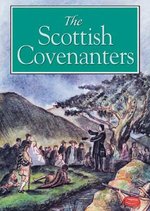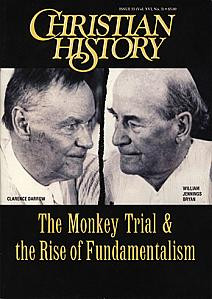J. Gresham Machen Battled New Errors Among Presbyterians
A DEFENDER OF THE FAITH was born in Baltimore, Maryland on this day, 28 July, 1881. John Gresham Machen’s father was a well-to-do lawyer, and his mother was also well-connected. Machen inherited money from both sides of his family, freeing him to pursue studies in the United States and in Germany.
Machen’s mother, Mary “Minnie” Jones Gresham, was highly learned. In 1903, she published The Bible in Browning, a study of religious imagery in Robert Browning’s poetry. A Presbyterian, she taught her son the Westminster Shorter Catechism at an early age. He would later say that at twelve he had a better understanding of Scripture than many students entering seminary. Minnie’s religious views dominated the home, for although Machen’s father was Episcopalian, the family attended the Franklin Street Presbyterian Church.
At seventeen, Machen entered Johns Hopkins University, won scholarships, and was invited into honors societies. After some internal debate, he decided to become a theologian, entering Princeton in 1902. He also studied in Germany for a year (1905). Germany at that time was the world center of theological innovation. Under the influence of a charismatic teacher, he almost succumbed to modernism, but once he had worked through the issues involved, he attached himself to conservative Reformed theology. He would later remark, “Christ keeps a firmer hold on us than we keep on him.”
In 1914, he was ordained as a Presbyterian minister. Convinced that the Bible is true and that Christ lives today, he became a champion of traditional Calvinism and an ally of the developing fundamentalist movement. The movement took its name from a series of twelve pamphlets published between 1910 and 1915 attacking “higher criticism” of the Bible (which focused attention on the Bible as a human document) and emphasizing the Virgin Birth, the deity of Christ and his atonement for our sins, and other traditional Christian doctrines.
Unlike Machen, modernists doubted that Christ literally rose from the dead, scoffed at the Virgin Birth, and expressed skepticism at the miracles recorded in the Bible. They disputed the Bible’s divine inspiration. Some claimed Paul invented a different religion than Jesus taught. Machen was a staunch defender of the truths that modernists attacked. He declared that liberal Christianity was a different religion from scriptural Christianity. With his training and insight, he wrote highly respected works defending Biblical positions.
Eventually, Machen left Princeton and founded Westminster Seminary to reclaim the truths that he saw being thrown away. Alarmed that he saw some Presbyterians (such as Nobel Prize winner Pearl S. Buck) watering down the Christian faith in foreign countries, he helped found the Independent Board for Presbyterian Missions. The Presbyterian Church suspended him from the ministry, claiming he had created schism. Undeterred, he joined in founding the Presbyterian Church of America, later known as the Orthodox Presbyterian Church.
These initiatives demanded an immense amount of time from him and overwork undoubtedly contributed to his early death. He was just fifty-five when he died in 1936, having traveled and preached up to the day before his death. Among those deeply influenced by Machen was the twentieth-century apologist Francis Schaeffer.
—Dan Graves
----- ----- -----
Machen adhered to a form of Presbyterianism fire-tested by the Scottish Covenanters.
His insistence on biblical truth is considered in the article "A Return to Bondage" in Christian History #55, The monkey trial & the Rise of Fundamentalism
Other Events on this Day
- GUDINA TUMSA’S FAITH DID NOT PERMIT HIM TO FLEE
- Keith and Melody Green Witnessed a Hitchhiker’s MIRACLE







